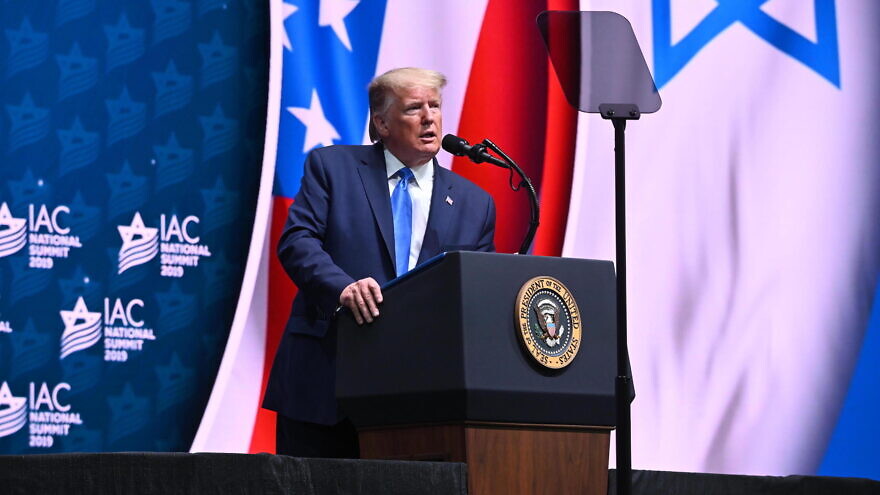U.S. President Donald Trump is expected to sign an executive order on Wednesday addressing anti-Semitism amid the rise in hatred towards Jews in education in the United States, announced the White House in a call with reporters on Tuesday evening.
The measure is particularly focused on activities on American college campuses, where the anti-Israel BDS movement has taken a hold among students and even faculty.
It would require the U.S. Department of Education to adopt the International Holocaust Remembrance definition of anti-Semitism in evaluating such incidents on college campuses and at other educational institutions in accordance with the landmark Title VI, enacted as part of the Civil Rights Act of 1964.
The new executive order would also label Judaism as a nationality, in addition to a religion, so that it would fall under Title VI, which prohibits discrimination on the basis of race, color and national origin in programs and activities that receive federally financial assistance. Religion was not included among the protected categories.
“It will have an immediate impact on U.S. campuses plagued with anti-Semitic and extreme anti-Israel acts, where many university officials complained that the lack of a working definition of anti-Semitism hampered efforts to deal with anti-Semitic incidents on campus,” said Simon Wiesenthal Center associate dean Rabbi Abraham Cooper in a statement. “Now, through this Executive Order, necessitated by Congress’ failure to pass legislation, university officials and Jewish students will be better equipped to deal hate attacks often associated with the anti-Israel BDS campaigns.”
“More broadly, President Trump’s Executive Order sends a strong message domestically and around the world against history’s oldest hate at a time of surging anti-Semitism on both sides of the Atlantic,” he added.
The Republican Jewish Coalition hailed the upcoming move as a “historic and important moment.”
“This is a truly historic and important moment for Jewish Americans,” said RJC national chairman and former Minnesota Sen. Norm Coleman in a statement. “President Trump has extended to Jewish students very strong, meaningful legal protection from anti-Semitic discrimination.”
At the Israeli-American Council’s annual summit on Saturday, Trump addressed the issue of anti-Semitism, which he called a “vile poison.”
“My administration is committed to aggressively challenging and confronting anti-Semitic bigotry in every resource, and using every single weapon at our disposal,” he said.
Americans Against Anti-Semitism called the announcement decisive amid inaction from Congress. Bryan Leib, a board member, told JNS that the organization applauds the president for taking decisive action to combat anti-Semitism in America “because unfortunately, Congress has failed to act.”
The House has stalled on the Anti-Semitism Awareness Act, introduced in July by Rep. Doug Collins (R-Ga.) that would require the U.S. Department of Education to adopt the International Holocaust Remembrance definition of anti-Semitism in evaluating incidents on college campuses and at other educational institutions.
The Senate version was reintroduced in March by Sens. Tim Scott (R-S.C.) and Bob Casey (D-Penn.).
In the past, while pro-Israel groups have supported the measure, organizations such as the American Civil Liberties Union have opposed it, citing First Amendment concerns.
Jewish Democratic Council of America executive director Halie Soifer slammed Tuesday’s announcement.
“Less than 72 hrs after calling Jews killers, accusing Jews of not loving Israel enough, and repeating dangerous anti-Semitic stereotypes, Trump does this. Coincidence? NO. Attempt to gloss over his anti-Semitism & direct role in our rising insecurity? YES,” she tweeted.
Less than 72 hrs after calling Jews killers, accusing Jews of not loving Israel enough, and repeating dangerous anti-Semitic stereotypes, Trump does this. Coincidence? NO. Attempt to gloss over his anti-Semitism & direct role in our rising insecurity? YES. https://t.co/Wl3bv1Amm7
— Halie Soifer (@HalieSoifer) December 10, 2019


























